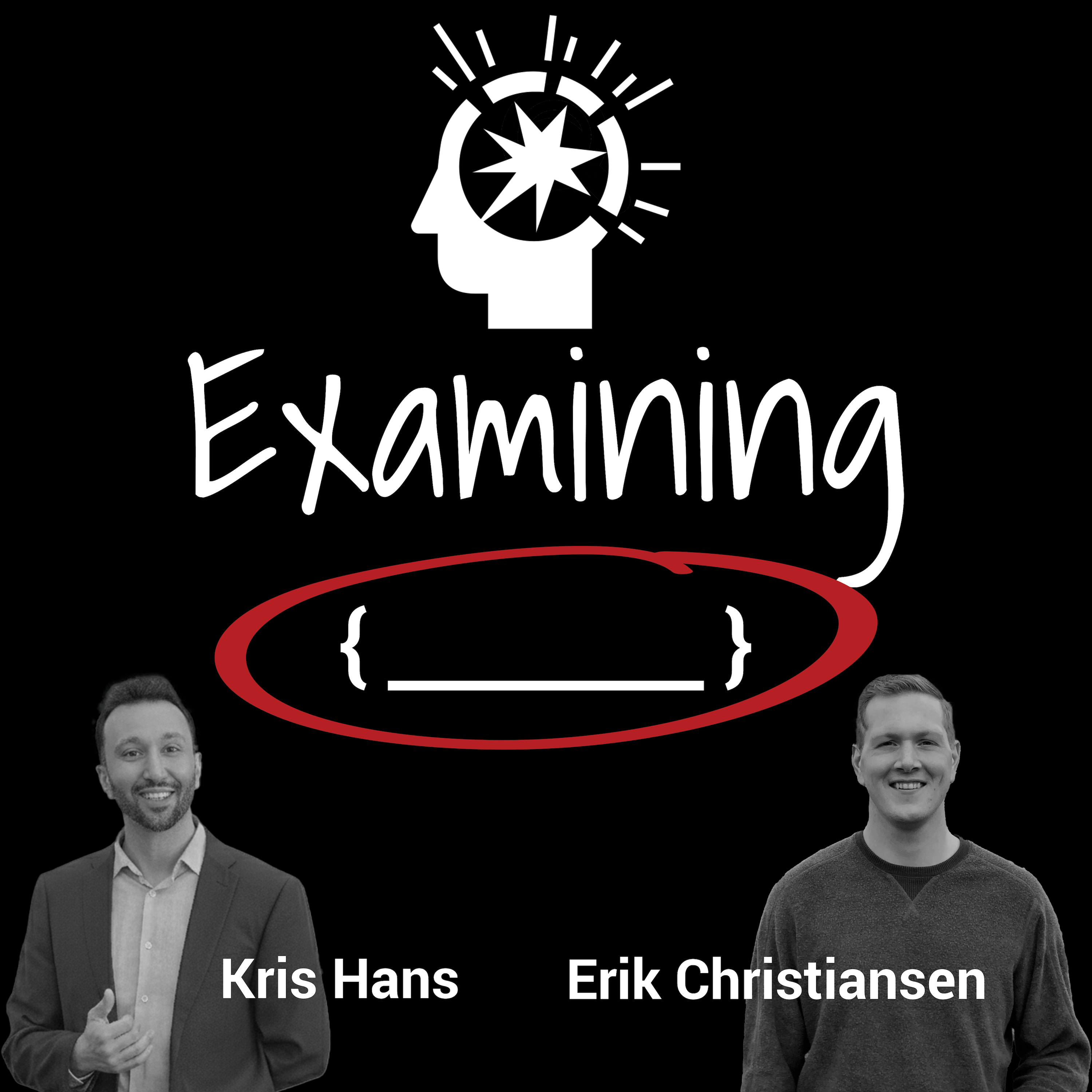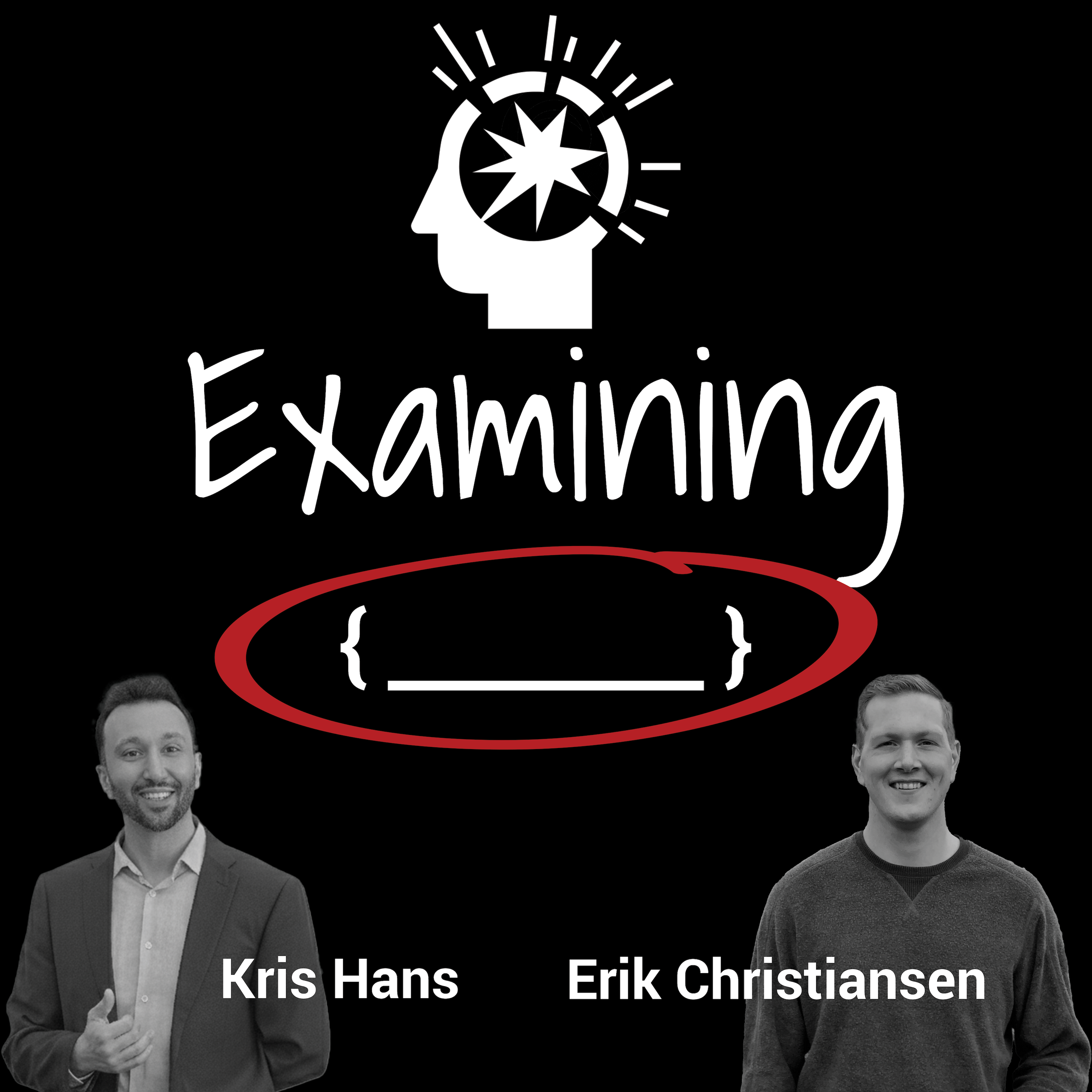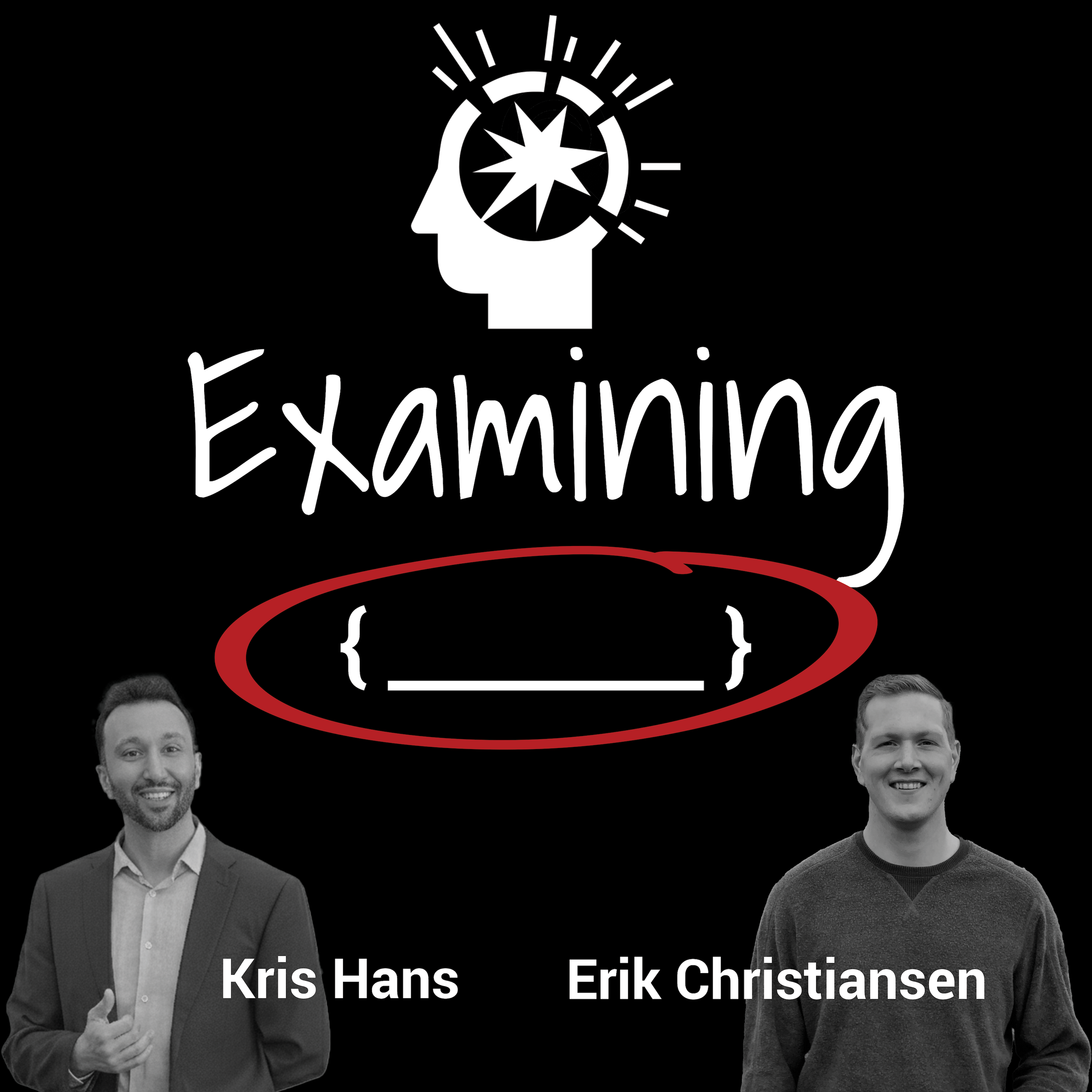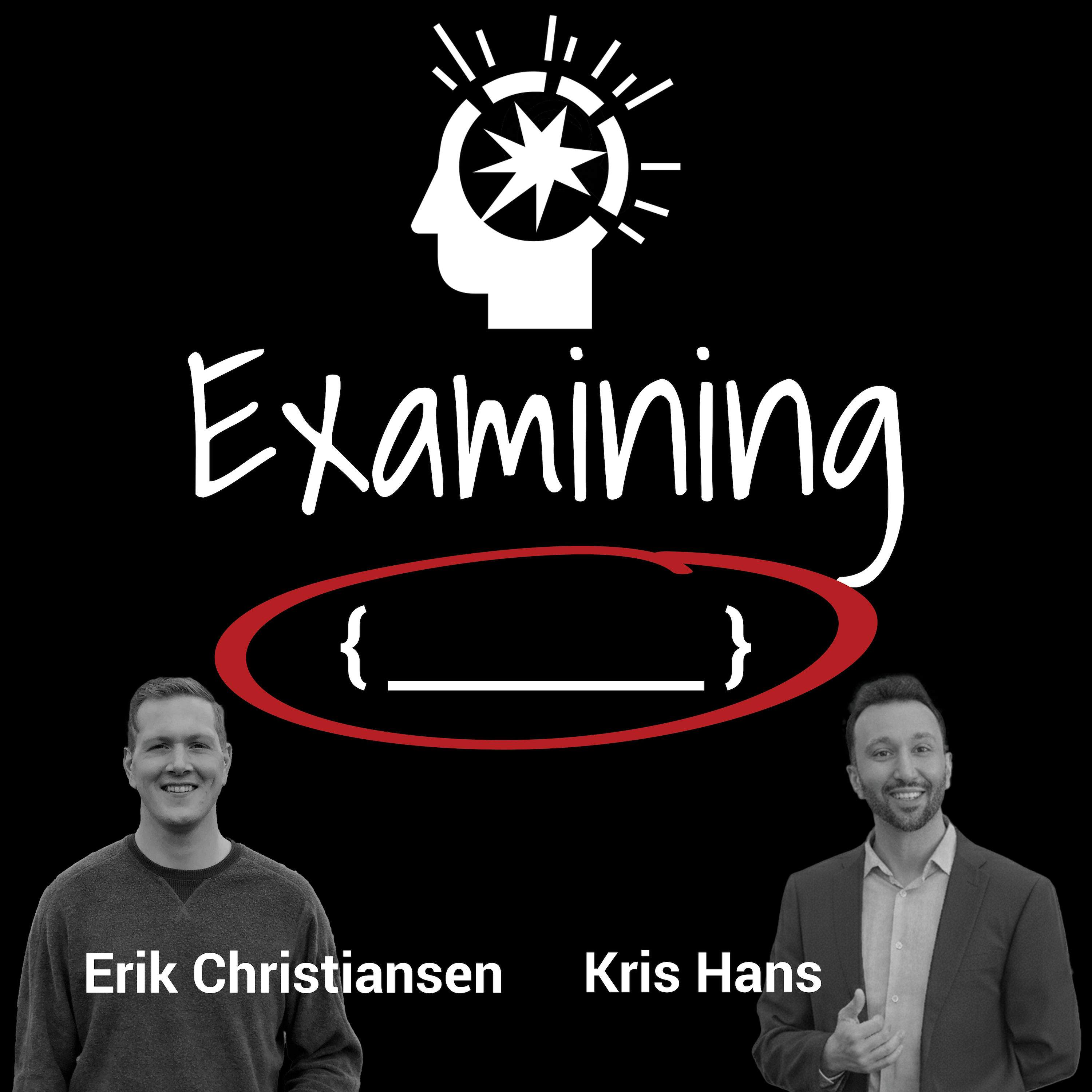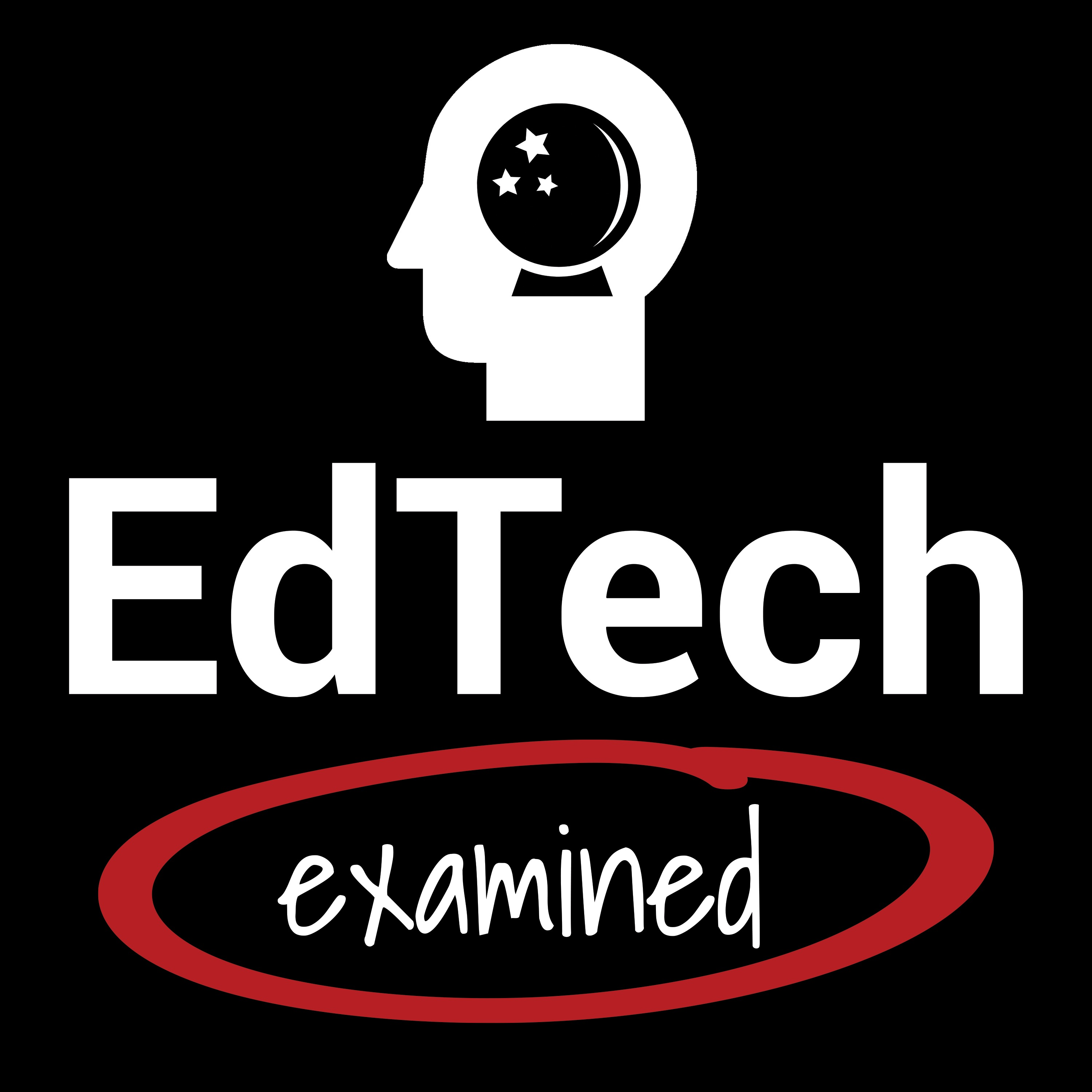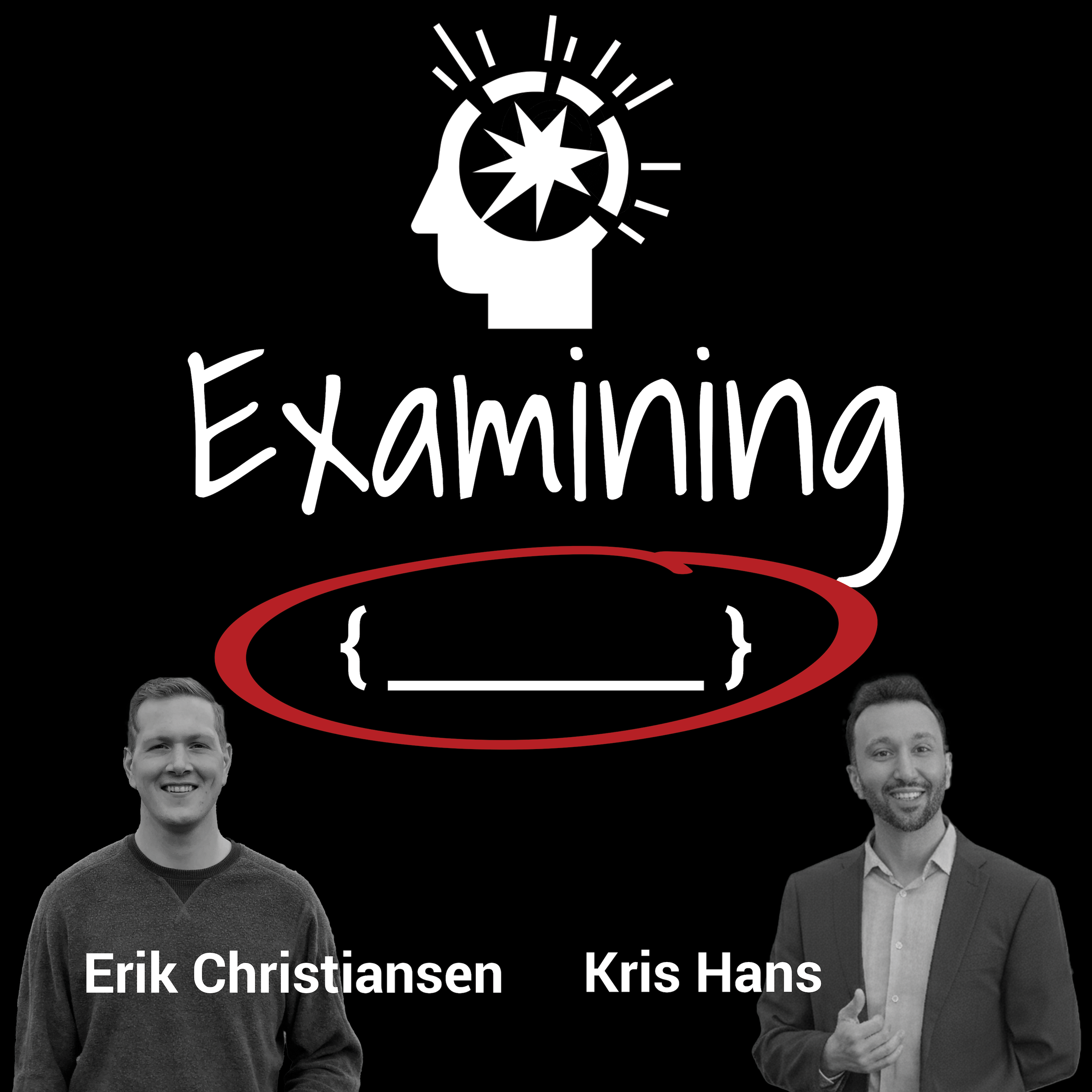Episode Transcript
[00:00:00] Foreign.
[00:00:08] Welcome to examining a technology focused podcast that dives deep.
[00:00:14] I'm eric christiansen.
[00:00:16] And I'm chris hans.
[00:00:22] And welcome to another episode of Examining the Technology Focused Podcast that Dives Deep. We're on to episode 83 of our podcast today.
[00:00:36] My colleague Chris Hans is still away, so this is going to be another solo episode, another shorter solo episode. But once again, I think this topic is going to lend itself relatively well to a solo conversation with our dedicated listeners.
[00:00:53] Today we're talking about why AI prompting is hard.
[00:00:59] So I'm going to get right into the middle of it. Most of us have spent about 20 years, give or take, learning how to search the web.
[00:01:09] So from the early days of altavista all the way up to Google, and for those users who use Bing and some of the other AI powered and other kind of third party or even paid search engines, we've been using software. Search is the primary interface to accessing the web for roughly 20 years. So we have a pretty good idea of how to search and how to search effectively.
[00:01:31] That experience really shapes how we approach information online.
[00:01:36] But the reason that AI prompting kind of throws people for a loop, perhaps why it's such a challenge is that chatbots do not behave like search engines. And prompting them effectively means rethinking the habits that that we've built over all these decades. And that's a tall order.
[00:01:53] We're so used to typing short, tight queries into search engines like Google and letting the algorithm do the heavy lifting.
[00:02:02] Even full questions where you type them in with a question mark typically work thanks to the Google knowledge graph. For example, if I was to search something like what are the most reliable SUVs in 2025?
[00:02:18] You would actually get a reasonable answer.
[00:02:21] In a library database, we have to be even more concise, or any sort of academic database. If you ever searched your public library, this is also the case because we have to break those ideas into keywords and connect them together with boolean operators and or quotation marks, wildcards, etc. And so big part of my job is teaching people how to translate an idea into an effective search.
[00:02:46] But prompting AI completely flips this on its head.
[00:02:50] It's not difficult because you need special knowledge. It's difficult because you have to do the opposite of what you've been trained to do for 20 years. AI works much better when you're verbose and specific and descriptive.
[00:03:04] So instead of stripping down your query, you often want to elaborate on it, add more detail.
[00:03:11] And this isn't speculation.
[00:03:13] For example, even if you read OpenAI's best practices for Prompt Engineering, I don't know if we're still using that term, but that's what they had it as of 2024. They put it really plainly that prompts should provide clear, specific and descriptive instructions, including all necessary context and details.
[00:03:32] The company Palantir has a guide to best practices for prompt engineering, and they argue that you need to be explicit about the desired behavior constraints and structure the output. So there's some alignment here, and these points illustrate this shift. That prompting is a lot closer to writing kind of a mini brief than it is tossing terms with plus signs or and or into a search engine. And so here's some examples I'm going to try to paint a picture for you of what this looks like in practice.
[00:04:06] If I'm searching Google and let's say that I'm looking for reliable SCVs, the most reliable SCVs as of 2025, I might type something like the most reliable SUVs 2025.
[00:04:22] If I'm being really clever and I want to use the Google Operator, the plus sign in front of a term will guarantee that that term will show up in the title of the results that are presented on the search results list. I might do plus most plus reliable plus SUV plus 2025 or something along those lines.
[00:04:46] However, if I were to do this in an AI context, then I'd need to be a little bit more descriptive. In fact, much more descriptive. And I may write a prompt like the following, which is actually something I tried.
[00:04:59] Quote Find sources on the most reliable SUVs in 2025, including reliability scores, warranty coverage and comparisons from sources such as Consumer Reports, JD Power, Car and Driver, etc.
[00:05:17] Now that's a pretty basic prompt for all things considered. If I wanted to say, use an AI's deep research report writing feature, which is something that I found to be incredibly useful, incredibly useful for providing overviews, especially histories of products, technical information with a lot of citations.
[00:05:38] I would need to spell out the structure, the sources, comparisons, and perhaps even the formatting of the report so how I want the information presented to me. And that's a huge mental shift. So for getting a detailed report on, let's say, these SUVs, here's a good example of how I might have to prompt something like ChatGPT or Copilot. In fact, this is an example that I tested.
[00:06:05] So for a deep research report, remember, I have to provide much more context. That's going to give the AI some idea of what the output should actually look like.
[00:06:14] So here's my prompt.
[00:06:16] Conduct deep research on the most reliable SUVs expected in 2025. Use sources such as Consumer Reports, J.D. power Car and Driver, Cali, Blue Book, etc. Include reliability ratings, warranty coverage, common mechanical issues, and expert predictions. Compare leading models from Toyota, Honda, Subaru and Ford. Present findings in a structured report with tables and clear recommendations for consumers.
[00:06:45] Again, when you do a prompt with a deep research tool, what usually happens, regardless of how detailed your prompt is, is that the AI will actually come back with them clarifying questions. And so inevitably when you're doing these things, doing deep research, it becomes a two step process before it starts anything.
[00:07:05] The challenge gets even bigger when you're generating something like images.
[00:07:09] These AIs don't share our mental picture, so we have to be very specific. We can't assume that an AI chatbot is going to be able to guess. In fact, if we allow an AI chatbot to guess when we're generating images, it's going to fill in the blanks with things that we didn't expect.
[00:07:29] So let's go over an example of an image that I might want to generate. Let's assume that I want to generate an image of an old school printing press. So think of the old school printing press in your mind. Think of all of the heavy forged parts. Maybe it's made of steel, maybe it's iron. It's heavy, it's dense, it's mechanical, it's noisy. That's kind of what I'm thinking.
[00:07:54] But instead of printing out paper, what I want is an image of a printing press that's spitting out digital pixels. And these pixels are floating through the air and I want them to merge and coalesce into digital books. So I want to paint a picture of an image that's kind of spanning analog, a printing press and digital content creation.
[00:08:20] And this is something I was doing recently.
[00:08:22] Now one of the cool things that you can do with AI, and this is a pro tip, is that if you're struggling with a prompt for imagery in particular, it's actually a bit of a meta hack to ask the AI chatbot to help you craft the prompt for what you want in a separate chat.
[00:08:42] So it'll help you be more specific, it'll ask clarifying questions and then you can take that prompt, edit it, start a new chat where you asking it to create an image. So here's an example of a prompt that I had help with from a tool called Microsoft Designer. So I quote, create an image, period.
[00:09:07] A super realistic scene inside a vintage printing room featuring an ornate old school printing press at the center.
[00:09:16] A focused operator in classical work attire stands behind the press, hands guiding the machine. The room is softly illuminated by warm golden light streaming through tall windows, casting gentle shadows across stacks of paper and wooden shelves.
[00:09:34] Instead of traditional paper, vibrant, glowing pixels pour out from the press, swirling and floating. The pixels coalesce and merge to form floating digital representations of books.
[00:09:48] That's an example prompt that I actually used.
[00:09:52] So this is just a kind of a quick overview of why prompting is hard to sum up. We have been trained to do the opposite for decades.
[00:10:01] I do not believe that AI searches, as useful as they are, are poised to completely replace web search. There are many times when it's much faster to do a web search.
[00:10:12] It's often easier to Google something than it is to argue back and forth with an artificial intelligence to get the results that you want. But I do think that AI search is going to eat some of the search industry's market share simply because it can generate reports, it can create imagery, it can do things that aren't just a list of links.
[00:10:33] But I think it's going to take time because just like it took a long time for people to learn to be more concise in their searches, they're going to have to learn to be more verbose, more descriptive, more specific to get the most out of AI, to use it as a companion to help you and make you more efficient. Prompting is hard because it's the opposite of what we've been trained to do.
[00:10:57] It's going to require a lot more creativity. And in many ways prompting, prompt engineering, whatever you want to call it, is going to force us to think, think more clearly about the outputs that we want. And what I think is interesting about prompting in general, something that perhaps we haven't discussed on this podcast to date, is that if you think of the communications challenges that you've had with colleagues trying to get across ideas, and the back and forth in the conversation that's required to paint a clear picture in their mind of what you're getting at, or for you to ask questions of what someone else is describing, whether it be a project or some sort of vision so you can be on the same page as them.
[00:11:45] While I do get concerned about AI kind of perhaps creating a cognitive debt, as was stated in some of the MIT research, I think that there's an advantage in using, or I should say an advantage in crafting prompts well, because it's inevitably, in my opinion, going to carry over to our other communication.
[00:12:11] And so if AI prompting and specificity is one of the new literacies of the future, perhaps that'll have a positive impact on how we think about talking to our human colleagues and how we can make things clearer for them.
[00:12:29] Again, I hope this was helpful. This is just a quick rundown on prompting and why it's hard. Until next time.
